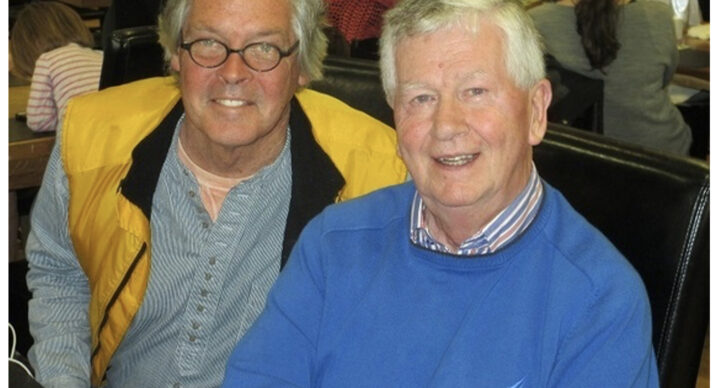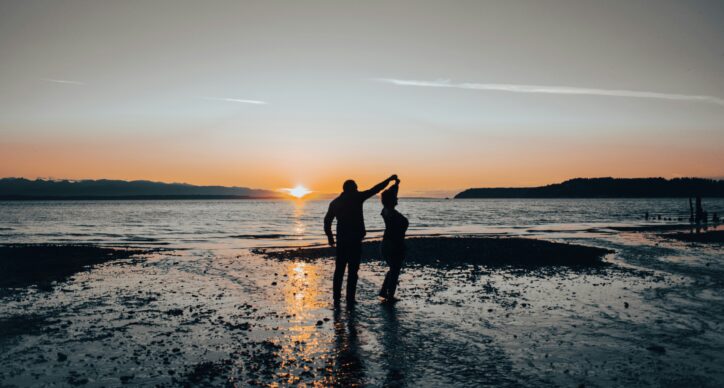Facing financial challenges with my advancing Alzheimer’s and cancer, I often repeat: “I have plenty of money; it’s just tied up in debt…”
Humor is a coin of life—a currency needed in plodding through the serpentine valley of Alzheimer’s and other forms of dementia.
I know first-hand about Alzheimer’s, a mind/body malaise that experts say can take up to 20 years to run its fearsome course—like having a sliver of your brain shaved every day. Alzheimer’s has taken several of my family members over the years, and about a decade ago Alzheimer’s came for me. I’m 74 now.
As a career journalist, a political and investigative reporter, I chose not to hide in the bunker, but instead to come out punching at this hellish disease in full faith, hope, and humor, refusing to give in, refusing to give up as experts race for a cure, and as I read the wrenching obits of others who have died from this disease.
So, I turned to the iconic film Animal House, to John Belushi, aka “Bluto” Blutarsky, in his epic speech rallying defeated fraternity brothers facing school expulsion:
“Over? Did you say ‘over’?” Bluto goads them. “Nothing is over until we decide it is!”
And so it should be in Alzheimer’s and other dementias, fighting back in numbers, as we can in the moment.
Deborah Kan, founder, and editor-in-chief, BeingPatient, captured this focus perfectly writing recently: “A loss of memory doesn’t mean that people cannot feel useful anymore. Alzheimer’s doesn’t mean that you cannot accomplish new things — even begin an unimaginably fulfilling new chapter of your life. It just means you need to figure out a new pathway for a different type of life. That starts with knowledge.”
Excellent advice—a good resolution for the New Year, though one has to work at it, and often dig for it. The stereotype of Alzheimer’s is just flat out wrong, but it can drive those on this journey deeper into an emotional pit of depression and anxiety when others in public inaccurately typecast the disease.
“Dementia can take others by surprise,” says a statement from those battling dementia with the counseling of the Alzheimer’s Family Support Center of Cape Cod, where I serve as an advisor.
“Dementia can be invisible; so people in your life may not recognize that you have it, or think that they know anyone who is affected by it,” notes the statement from the group’s Social Engagement Program, a cornerstone of the organization. “Some of us on this journey have had generations of dementia in our families and have cared for parents and grandparents. Dementia can be demoralizing. We see how it affects our kids, our grandkids, everyone. Many of us in Alzheimer’s have been successful earlier in our lives. We have served in the military and taught school and raised kids. We have spent our lives helping others and we don’t want to stop.”
And we shouldn’t. As the Alzheimer’s Family Support Center notes: “Until there’s a cure, there’s community.”
Community is a plural. A pity party, after all, is just a party of one. Those fighting dementia today are in a public petri dish of sorts. We can either assist the research in terms of early diagnosis, clinical tests, pursuing brain health models, figuring out new pathways and the like, or we can just surrender. No Mas
I remember well, so etched in my long-term memory, sitting in my doctor’s office years ago with my wife Mary Catherine by my side listening to my diagnosis after confirmation of numerous tests and brain scans. I could feel the tears running down my face. I reached for my wife’s hand and said, “What about the kids?”
Alzheimer’s is about the kids—your kids, my kids, your grandkids, my grandkids. It’s about protecting the next generations from this vile disease—about providing teachable moments. You can’t do that if you have surrendered.
I’ve lived on Outer Cape Cod for close to a half-century, just a mile from pastoral Cape Cod Bay and the Atlantic. My pathway, when feelings overcome, is often a walk along the ocean at Nauset Beach in Orleans. I follow the soothing surf, tossing like a little boy, small flat weather-beaten beach stones into the surface of the sea, then watching them bounce—flinging concerns away. Then I follow the path back to where I started. It’s always a peaceful, spiritual walk for me, making me realize there’s something far more powerful than the pain of dementia. I observe the single footprints in front of me, reflecting on the allegorical poem Footprints in the Sand—God carrying me.
There are many coping mechanisms. Caregivers also can help in finding new pathways for loved ones, with a better understanding of the disease. “By spreading awareness of the effects of Alzheimer’s, we can accelerate the search for a cure,” advises Cure Alzheimer’s Fund. https://curealz.org/awareness/
The biggest obstacle, though, is often stress. The Mayo Clinic has a remedy for such anguish. When one focuses “on small neutral or positive events, your brain learns that the threat is not as dire as it may first seem. The amount of stress hormones released is decreased, and you’re able to feel more emotionally balanced. It’s crucial to focus on the present moment. In the present, many neutral or positive events are occurring. When you focus on these types of events, it gives perspective about what’s happening around you. This allows you to shift your focus away from the stressors.”
Simple pathways can often be best when fighting the stress of emotional exhaustion.
Take Dr. Rudy Tanzi’s direction. Dr. Tanzi, Chair of the Cure Alzheimer’s Fund Research Leadership Group, also co-director, MassGeneral Institute for Neurodegenerative Disease, and a Joseph P. and Rose F. Kennedy Professor of Neurology at Harvard Medical School, calls his simple brain enhancing program “SHIELD.” https://curealz.org/news-and-events/rudy-tanzi-ph-d-shield-model-to-reduce-risk-of-alzheimers-disease/
It stands for: Sleep at least seven hours a night; Handle Stress; Interact regularly with friends; Exercise daily; Learn new things; Eat a healthy Mediterranean-type diet— there’s far more information in the link above.
As Kan writes so well: “Alzheimer’s doesn’t mean you cannot accomplish resourceful, new things.”
And as noted author, the late William Arthur Ward has written:
“The adventure of life is to learn.
“The purpose of life is to grow.
“The nature of life is to change.
“The challenge of life is to overcome.
“The essence of life is to care.”
Peace in finding new pathways…
Greg O’Brien is the author of the internationally award-winning On Pluto: Inside the Mind of Alzheimer’s, the first book written by an investigative reporter, probing the progression of his own disease. A newspaper journalist, O’Brien is co-producer and scriptwriter of a national television documentary about his family journey (Have You Heard About Greg) that recently won a Los Angeles Press Club Emmy award.
(The views and opinions expressed in this writing are solely those of the author.)








